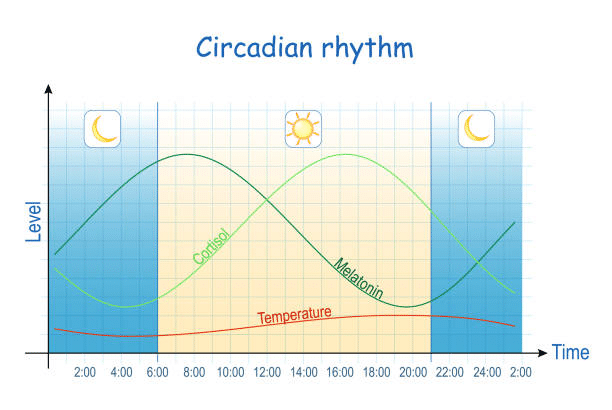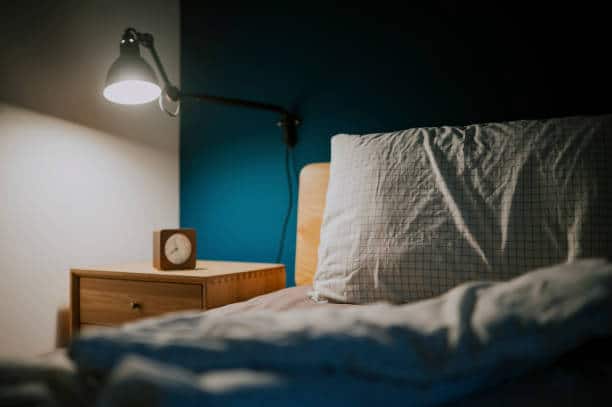Step into an enlightening journey of discovery where the gateway to unleashing your complete potential lies in better sleep. In this article, we will delve into the fascinating science behind sleep, understanding how it impacts our daytime performance and overall well-being.
We’ll explore the crucial link between quality sleep, cognitive abilities, emotional regulation, and physical health. So, if you’re ready to optimize your productivity and lead a more fulfilling life, let’s explore how better sleep translates into improved daytime energy.
The Science Behind Better Sleep
Sleep is not a uniform state; instead, it consists of different cycles and stages, each serving a vital purpose in our restorative process. Understanding these sleep cycles can help us appreciate the complexity and significance of achieving quality sleep.
Non-REM Sleep
The sleep cycle begins with non-rapid eye movement (NREM) sleep, divided into three stages. During NREM stage 1, we experience drowsiness and can easily wake up. As we progress to NREM stage 2, our brain activity slows down, preparing us for deeper sleep. NREM stage 3, known as slow-wave sleep, is crucial for physical restoration and growth.
REM Sleep
Rapid eye movement sleep is a distinctive phase characterized by vivid dreaming, rapid eye movements, and increased brain activity. This stage plays a significant role in memory consolidation and emotional processing.
MUST READ: What is REM Sleep?: Its Importance in the Sleep Cycle
The Role of Circadian Rhythms

Our body’s internal clock, the circadian rhythm, regulates various physiological processes, including our sleep-wake cycle. This internal clock is influenced by external factors such as light exposure and can be disrupted by irregular sleep patterns or shift work.
- Light and Melatonin: Light exposure, especially in the morning, helps synchronize our circadian rhythm. The hormone melatonin also plays a crucial role in promoting sleepiness, with its production increasing in the evening and decreasing in the morning.
- Impact of Shift Work and Jet Lag: Irregular work schedules and long-distance travel can disrupt our circadian rhythm, leading to sleep disturbances and fatigue.
Factors Affecting Sleep Quality
A good night’s sleep depends on various factors, and our sleep environment, dietary habits, and stress levels all play essential roles in determining sleep quality.
- Sleep Environment: Creating a sleep-conducive environment involves optimizing factors such as bedroom temperature, lighting, noise levels, and comfort of the mattress and pillows.
- Diet and Sleep: Our food and drinks can impact our sleep. Avoiding heavy meals, caffeine, and alcohol close to bedtime can promote better sleep.
- Stress and Sleep: High stress and anxiety levels can disrupt our ability to fall and stay asleep. Incorporating stress-reduction techniques into our daily routine can significantly improve sleep quality.
Now, Let`s Understand Daytime Performance
Daytime performance refers to our ability to carry out various cognitive and physical tasks efficiently and effectively during the hours we are awake. It encompasses various activities, from problem-solving and decision-making to physical coordination and interpersonal interactions.
Metrics For Assessing Performance
Measuring daytime performance involves examining specific metrics that provide insight into how well we function during waking hours. Some key metrics for assessing daytime performance include:
- Productivity: Productivity gauges how efficiently we complete tasks and achieve goals within a given timeframe. It considers factors such as task completion rates, time management, and the quality of work produced.
- Cognitive Function: Cognitive function encompasses a broad range of mental processes, including attention, memory, problem-solving, and creativity, all of which are essential for our mental health. Evaluating cognitive function helps us understand our ability to process information and make sound judgments.
- Alertness and Vigilance: Maintaining optimal levels of alertness and vigilance is crucial for staying attentive and avoiding errors or accidents, especially in critical situations.
- Physical Performance: For tasks that involve physical demands, such as sports or manual labor, assessing physical performance is essential to measure strength, endurance, and coordination.
The Link Between Sleep and Daytime Performance

The connection between sleep and daytime performance is undeniable, with sleep playing a crucial role in shaping various aspects of our cognitive abilities, emotional well-being, and physical health.
Cognitive Aspect
- Memory Consolidation: During sleep, our brain undergoes a process known as memory consolidation. This process helps transfer newly acquired information and experiences from short-term to long-term memory, solidifying our learning and experiences. Adequate sleep enhances memory retention, enabling us to recall knowledge and skills effectively.
- Learning and Creativity: Sleep fosters creativity and enhances our ability to learn. During REM sleep, the brain connects seemingly unrelated pieces of information, leading to novel insights and creative solutions to problems.
Emotional Aspect
- Emotional Regulation: Sufficient sleep plays a vital role in emotional regulation. When well-rested, we are better equipped to manage our emotions and respond to stressors in a more balanced manner. Conversely, sleep deprivation can lead to heightened emotional reactivity and decreased resilience to emotional challenges.
- Stress Management: Sleep is a natural stress-reducer. It helps lower cortisol levels, the hormone associated with stress, and promotes the release of neurotransmitters that contribute to a sense of calm and relaxation.
Physical Aspect
- Sleep and Immune Function: Adequate sleep strengthens our immune system, supporting the body’s ability to fight infections and illnesses. During sleep, the body produces cytokines, proteins crucial for immune response, helping to keep us healthy and resilient.
- Sleep and Exercise Performance: Quality sleep is essential for optimal exercise performance and recovery. Sleep contributes to muscle repair, energy restoration, and hormone regulation, which are crucial for athletic performance and overall physical well-being.
Strategies For Improving Sleep Quality

Achieving better sleep involves a combination of mindful habits and intentional lifestyle adjustments.
Optimal Bedroom Setup
Design your bedroom to promote relaxation and comfort. Ensure proper ventilation, moderate room temperature, and minimal noise levels. Invest in a supportive mattress and pillows catering to your needs for a more comfortable sleep surface and to help regulate your body temperature during the night.
Darkness and Light
Minimize exposure to artificial light sources, such as electronic devices and bright alarm clocks, as they can disrupt your body’s production of melatonin, the hormone responsible for inducing sleepiness. Consider using blackout curtains to block out external light sources.
Set a Regular Bedtime
Try to go to bed and wake up simultaneously each day, even on weekends. This practice helps regulate your circadian rhythm and improves the overall quality of your sleep.
Limit Napping
While short power naps can be beneficial, avoid long or late-afternoon naps, as they may interfere with your ability to fall asleep at night.
Limiting Screen Time Before Bed
Reduce exposure to screens (phones, tablets, computers, and TVs) at least an hour before bedtime. The blue light emitted by electronic devices can disrupt your natural sleep-wake cycle and make it harder to fall asleep.
Avoiding Stimulants and Heavy Meals Before Sleep
Minimize caffeine and nicotine intake in the evening, as they are stimulants that can interfere with your ability to fall asleep. Also, avoid consuming heavy or large meals close to bedtime, as they may cause discomfort and disrupt sleep.
Sleep Disorders And Their Effects
Sleep disorders can significantly disrupt our sleep patterns and profoundly impact our waking hours. Understanding the effects of these sleep disorders on our daytime performance is vital in addressing potential challenges and finding practical solutions for better sleep and overall well-being.
Chronic Primary Insomnia
Chronic primary insomnia, also known as insomnia, is characterized by difficulty falling or staying asleep, waking up frequently during the night, or waking up too early and unable to fall back asleep. It can lead to sleep deprivation and a range of daytime impairments.
Sleep Apnea
Sleep apnea is when breathing repeatedly stops and starts during sleep, leading to brief awakenings. It can result in fragmented sleep and severe daytime sleepiness due to interrupted breathing.
Restless Legs Syndrome (RLS)
RLS is a neurological disorder characterized by uncomfortable sensations in the legs and an irresistible urge to move them. These symptoms often worsen at night, making it challenging to fall asleep.
Signs of Sleep Disorders
Recognizing the signs of sleep disorders is crucial for early intervention and effective management. Some common signs that may indicate a sleep disorder include:
- Persistent Difficulty Falling Asleep or Staying Asleep
- Excessive Daytime Sleepiness
- Loud Snoring and Choking or Gasping during Sleep
- Restless or Uncomfortable Sensations in the Legs
Seeking Treatment Options
If you suspect you have a sleep disorder or experience persistent sleep disturbances, seeking professional help is essential. Consulting a healthcare provider or clinical sleep medicine specialist can lead to proper diagnosis and personalized treatment plans. Treatment options for sleep disorders may include:
- Cognitive Behavioral Therapy for Insomnia (CBT-I): CBT-I is a highly effective non-medication treatment, focusing on changing behaviors and thought patterns contributing to sleep difficulties.
- Continuous Positive Airway Pressure (CPAP) Therapy: CPAP therapy is commonly used to treat sleep apnea. It involves using a machine that delivers a steady stream of air to keep the airways open during sleep.
- Medications: Sometimes, sleep disorders may be managed with prescribed medications, including melatonin supplements. However, these are typically used as short-term solutions and are not recommended for long-term use.
- Lifestyle Modifications: As discussed in previous sections, implementing healthy sleep habits can also be beneficial in managing sleep disorders and ensuring enough quality sleep.
Lifestyle Changes For Better Sleep And Daytime Performance
Lifestyle factors play a pivotal role in determining the quality of our sleep and, consequently, our daytime performance. Here are some fundamental lifestyle changes that can lead to better sleep and enhanced daytime productivity:
- Diet and Exercise: Both diet and exercise are integral to a healthy life and have a direct relationship with sleep quality. A balanced diet and regular physical activity can contribute to more restful nights.
- Prioritizing Sleep: Just as diet and exercise are essential for good health, sleep is equally crucial. Quality sleep can enhance brain performance, mood, and overall health.
- Assessing Priorities: Sometimes, our work and personal commitments can interfere with our sleep. It’s essential to assess and prioritize tasks to ensure that sleep isn’t compromised, which can optimize work performance.
- Avoiding Weight Gain: Weight gain, insufficient physical exercise, and certain dietary habits are associated with poor sleep quality.
- Improving Sleep Hygiene: Adopting good sleep hygiene practices can significantly enhance sleep quality, directly affecting mental and physical health.
Final Thoughts
As we wrap up, it’s clear: better sleep can change our lives. Let’s use the tips we’ve learned, from setting up a comfy sleep space to trying out simple relaxation techniques. If you’re struggling with sleep, don’t hesitate to ask for professional advice.
Remember, a good night’s sleep isn’t just about the hours we clock in but also about taking care of our mind and body. Good sleep means better focus, mood, and health during the day.
For those using CPAP therapy as part of their sleep routine, enhancing your setup with the right CPAP accessories can make a notable difference. It’s always worth investing in quality tools that support your journey to restful nights. Dive in and see what could elevate your experience!
How would you summarize the main points of this article?



